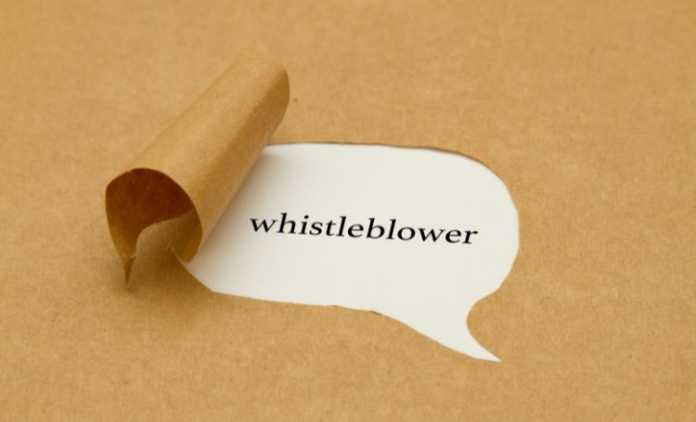Whistleblowers play a vital role in uncovering wrongdoing, whether it’s corporate misconduct, government fraud, or other illicit activities. However, stepping forward to report such misconduct can be daunting. Whistleblowers often face retaliation, job insecurity, and even legal repercussions. To protect those who seek the truth and expose wrongdoing, comprehensive legal rights and counsel are essential. In this in-depth guide, we’ll explore the legal intricacies surrounding whistleblower protection, the rights of whistleblowers, and the crucial role of legal counsel in their pursuit of truth.
Understanding Whistleblower Laws
Based on mannblake.com, whistleblower laws form the foundation of legal protection for those who come forward with information about wrongdoing. These laws vary from country to country, but they share common principles. The section provides an overview of the key whistleblower protection laws, such as the U.S. False Claims Act and the Dodd-Frank Act, highlighting their significance in safeguarding whistleblowers and offering incentives for reporting.
In the United States, the False Claims Act, dating back to the Civil War era, is a powerful tool for combating fraud against the government. It allows whistleblowers, also known as qui tam relators, to file lawsuits on behalf of the government to recover ill-gotten funds. Successful qui tam cases can result in substantial rewards for whistleblowers, often in the millions of dollars. Additionally, the Dodd-Frank Wall Street Reform and Consumer Protection Act offers protections and incentives for whistleblowers who report violations of securities laws and regulations.
Whistleblower Rights and Protections
Whistleblowers are entitled to certain rights and protections under the law. This section delves into the legal safeguards that shield whistleblowers from retaliation, including job reinstatement, back pay, and damages. It also explores the process of reporting misconduct internally and externally, as well as the importance of confidentiality in whistleblower cases.
Understanding the rights of whistleblowers is crucial for both those considering blowing the whistle and those tasked with protecting their rights. These rights may include protection from retaliation, the right to remain anonymous, and the right to seek legal counsel. Legal protections often extend to various forms of retaliation, such as termination, demotion, harassment, or any adverse employment action taken in response to the whistleblower’s actions.
The Role of Legal Counsel
Legal counsel is the backbone of whistleblower protection. Whistleblowers often require skilled attorneys to guide them through the complex legal landscape. This section emphasizes the critical role of legal counsel in advising whistleblowers on their rights, assisting with documentation, and representing their interests in court if necessary. It also discusses the attorney-client privilege and its significance in whistleblower cases.
The attorney-client privilege is a cornerstone of legal representation for whistleblowers. It ensures that communications between the whistleblower and their attorney are protected and confidential. This privilege encourages open and honest communication between clients and their legal counsel, allowing attorneys to provide the most effective guidance and representation.
Reporting Mechanisms and Procedures
Reporting misconduct is a fundamental step in whistleblower cases. Here, we examine the various reporting mechanisms and procedures available to whistleblowers, including internal reporting to employers, reporting to government agencies, and pursuing qui tam actions. We also highlight the importance of accurate and detailed documentation when presenting a case.
Whistleblowers often face challenging decisions when it comes to reporting misconduct. Internal reporting within an organization can be a viable option, but it may also expose the whistleblower to retaliation. Reporting to government agencies, such as the Securities and Exchange Commission (SEC) or the Occupational Safety and Health Administration (OSHA), can trigger investigations and legal actions. Qui tam actions, filed under the False Claims Act, allow whistleblowers to take legal action on behalf of the government.
The Impact of Whistleblowers
Whistleblowers often face personal and professional challenges, but their actions can lead to significant changes. This section explores the impact of whistleblowers on society, from uncovering fraud and corruption to improving corporate governance and ensuring public safety.
Whistleblowers have played pivotal roles in exposing major corporate scandals and government fraud. Their actions have led to substantial financial recoveries for governments and have deterred fraudulent activities. Additionally, whistleblower protections have evolved to encourage individuals to come forward and report misconduct in various industries, including healthcare, finance, and the environment.
Conclusion
In conclusion, whistleblowers are the unsung heroes of accountability and justice. Their courage to speak out against wrongdoing is a cornerstone of a just society. To ensure their protection and success in the pursuit of truth, understanding whistleblower laws, rights, and the critical role of legal counsel is paramount. Whistleblowers deserve not only our gratitude but also unwavering support and comprehensive legal protection.
As we continue to champion their cause, we strengthen the foundations of integrity, transparency, and accountability in our organizations and communities. Whistleblowers are essential in the fight against fraud, corruption, and injustice, and by upholding their rights and providing legal counsel, we contribute to a better and more just world.



























